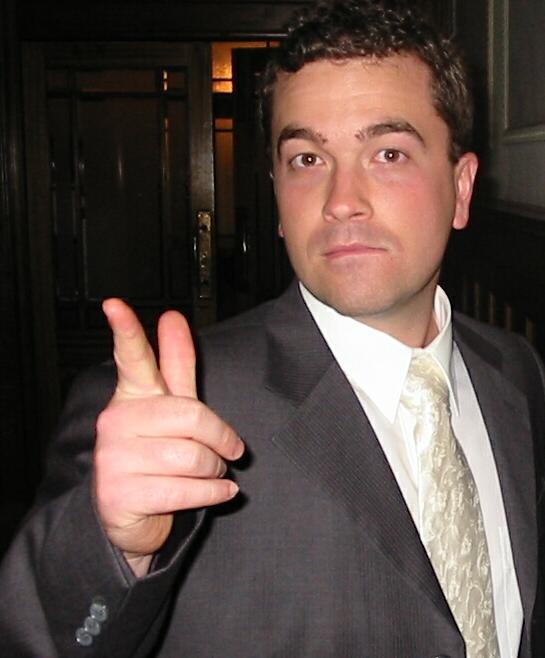He excelled as a patient and conciliatory chairman. Yet Wright's temperate influence upon the Diocese was resented by conservative Evangelicals who believed that he over-emphasised his administrative role and failed to give sufficient leadership to his flock. They were wanting a father-in-God, not a moderator.
Judd and Cable, Sydney Anglicans, 225-26.
But his 1931 address to Synod during the worst months of the Depression shows that he was far from being a soft pen-pusher:
 The fact is that two years ago we had abundant money. There was money everywhere. But we were living in a fool's paradise. We forgot that it was borrowed money, borrowed lightly and spent gaily in the State and Church and by private individuals ... Then came what no one had deemed possible - all over the world a sudden collapse of the world's purchasing power ... It is not easy to cure the borrowing habit. We all alike had become extravagant. The luxuries of yesterday had become the necessities of today. But at last the unwholesomeness of the position was sternly brought home to us...this was, itself, a call from God to live a simpler life.
The fact is that two years ago we had abundant money. There was money everywhere. But we were living in a fool's paradise. We forgot that it was borrowed money, borrowed lightly and spent gaily in the State and Church and by private individuals ... Then came what no one had deemed possible - all over the world a sudden collapse of the world's purchasing power ... It is not easy to cure the borrowing habit. We all alike had become extravagant. The luxuries of yesterday had become the necessities of today. But at last the unwholesomeness of the position was sternly brought home to us...this was, itself, a call from God to live a simpler life.We have to confess that the days of prosperity with which we have been blessed in the past have involved the temptation to forget God as the author of our success.
Cop that Synod.
But the really impressive bit of what is really a remarkable piece of oratory is his call for the church to place their hope in the Father's eternal benevolence:
We are all suffering from a pressure of financial anxiety such as we have never known in this generation and never dreamt that we could know. Things were threatening with dark clouds at the beginning of the year, but since then, month by month, the clouds have banked up in darker masses in the heavens ... Yet no one who believes in God and His fatherly care ought to despair of the future. As we enter the unknown we should recall the command of God to his people of old as the approached the land of promise, 'Be strong and of a good courage'.
What I like about this address is Wright's willingness to not pull punches (note his call for the church to repent), while sharing the blame (note his use of the 1st person plural in the first quote). And then he speaks of the sure hope we have which is guaranteed by the Father's love. A nice theological response to a tough time. Of course, detractors of Wright will say that this was precisely the problem; he provided a theological response when what was needed was practical relief. While Wright firmly believed that the Church's primary role was to provide spiritual direction, it remained the case that on an organizational/institutional level the Church was unable to do much due to a lack of funding and resources. AND part of the problem seems to have been that the hardline evangelicals had pulled their funding from the Diocese because they didn't respect the Archbishop. This is why it was left to people like RBS Hammond of St Barnabas Broadway to do what they could in the parishes (and in RB's case, that was quite a lot).
Still, Wright's address is a definite "Father-in-God" moment, no matter what his reputation might be.
Pic is of John Charles Wright with his wife Dorothy.

1 comment:
Thanks Marty, nice to finally see something archbishop Wright wrote. He's often criticized, along with Sauramez-Smith, his predecessor, as being a better College Principal rather than an Archbishop.
What do you think?
Post a Comment